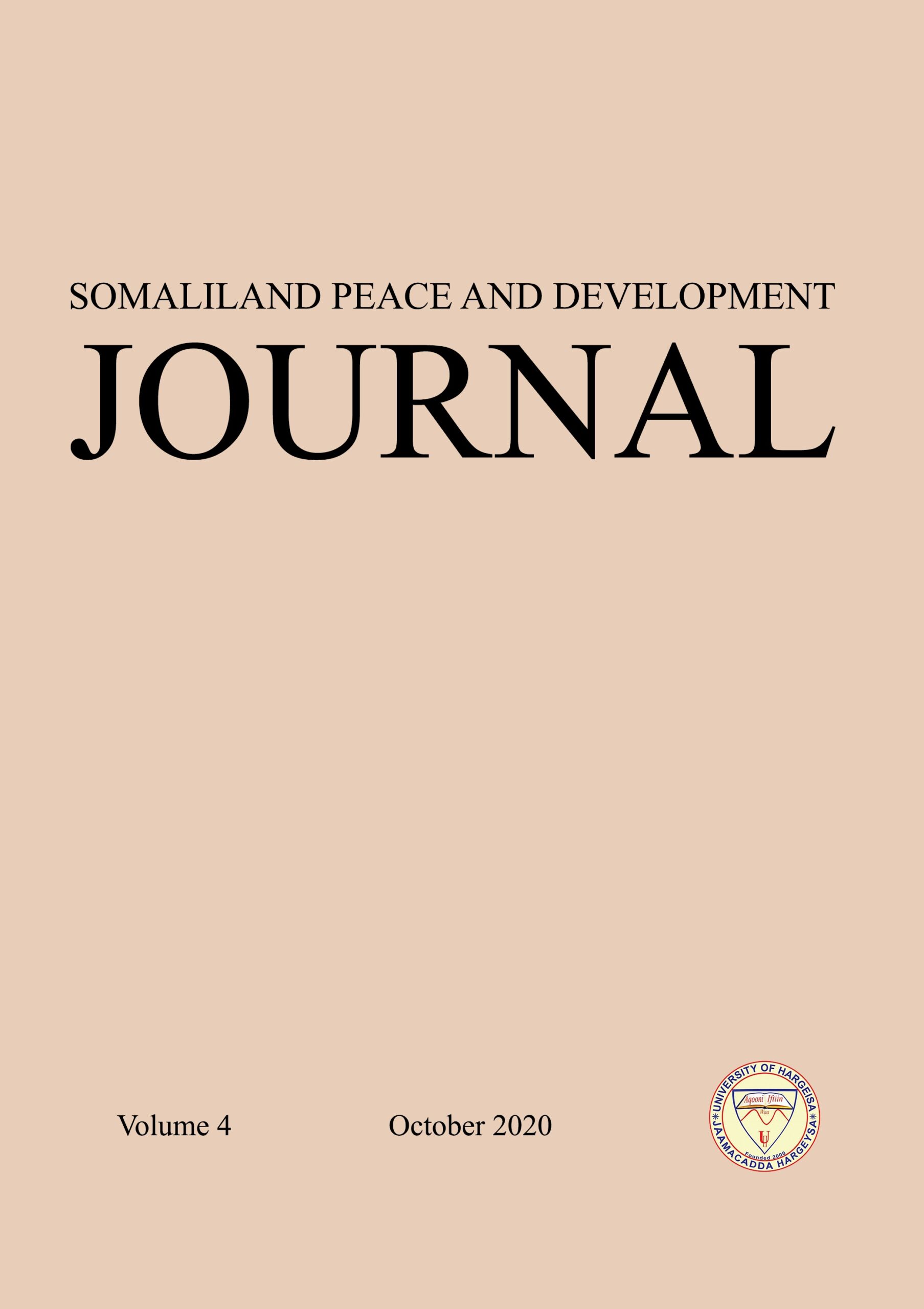The Somaliland Peace and Development Journal (SPDJ) is an annual peer-reviewed academic journal published by the Institute for Peace and Conflict Studies of the University of Hargeisa. The journal’s core mission is to enhance understanding of peace, conflict management, and development through research and publication.
In its holistic multidisciplinary approach to research, the journal aims to increase the capacity of people to analyze and better understand the fundamental causes of social, economic, political, and environmental challenges through the facilitation of healthy and intellectual discussion.
Towards this goal, the journal foster the dialogue between academics, practitioners, and policymakers inside and outside of Somaliland on several issues related to peace, security, and development. Furthermore, the journal serves as a vehicle for broader dissemination of research findings to inform policymaking.
Towards this holistic objective, the journal focuses on the following thematic areas: conflict and development, political violence, violent extremism, governance and democracy in post-conflict settings, peace, conflict, and education, migration and climate change, and security.
In the post-1991 period, there have been considerable improvements in Ethio–Somaliland relations. The people of the two countries involved in development of better relations and cooperation which significantly contributed to the security and stability of the region. While Ethiopia became a landlocked state following Eritrea’s separation from Ethiopia and the subsequent war on the border between the two countries. Somaliland has paid special attention to the situation of Ethiopia’s landlocked status and opportunities that entailed. On the other hand, Ethiopia has been aware of its vulnerability by relying on a single port in a foreign country...
This article makes a comparative analysis of the conditions of ethnicity, ethnic conflict, and the political order of federalism in Ethiopia and Nigeria. Both Ethiopia and Nigeria share common highly ethnically diversified and large numbers of the population, recurrent inter-ethnic conflict, and the adoption of federalism as a system of ethnic conflict management. Also, the two countries depict differences including the status of ethnicity in each country’s version of federalism. While ethnicity is accepted as a means of political mobilization and base of structuring the Ethiopian federation...
This article is based on Richard Ruiz’s language orientations and the constitution of UNESCO. The central objective of this article is to examine the role played language to escalate conflict and confrontations in the mainland of Sudan. In addition to existing literature on the issue, the study also relied on primary data and interviewed people who participated in those protests. One of the major findings of this study is the policy to use Arabic as a language of instruction in schools...
Traditional ecological knowledge (TEK) is directly linked to lands, animals, ecology, and natural resources. It is an ancient practice that continued through generations over generations linked to spirituality and sustainability. Often referred to as indigenous knowledge, TEK represents a collective understanding attained over time of the relationship between traditional communities and the earth. TEK is preserved primarily as an oral tradition and is passed from generation to generation through storytelling, ceremonies, arts, crafts, and songs....
This paper takes a look at the presidential primaries in the US, by providing the background and the different methods adopted by states in conducting the primaries. It has proceeded to highlight the importance of voter mobilization and the factors that play in voters’ mobilization for a candidate to win in the primaries. Subsequently, it answers the question; what accounted for the success of Trump and Clinton in the presidential primaries of 2016? This question has been answered based on two hypotheses around the candidate’s background and financial resources vis-à-vis success in primaries...


Connect with like-minded individuals, establish contacts with scholars, and become part of a thriving academic community.
